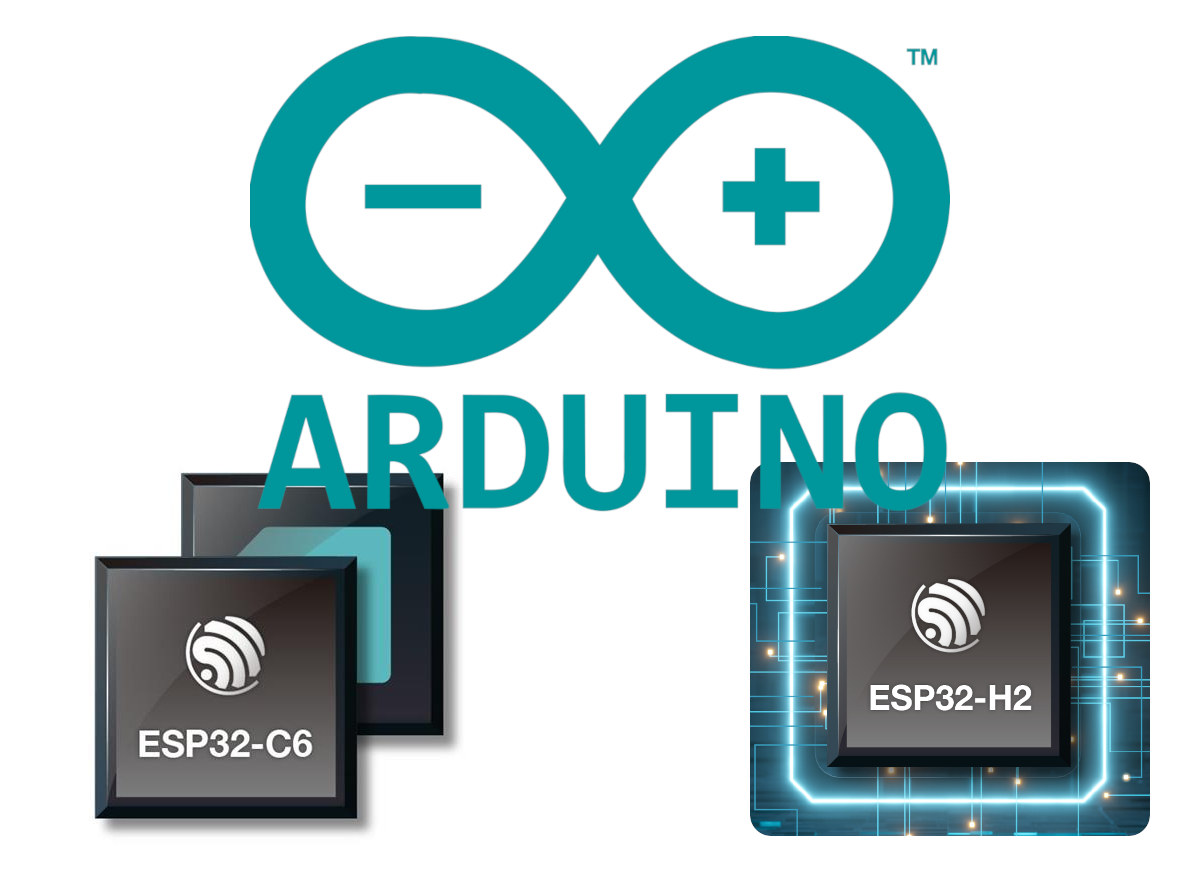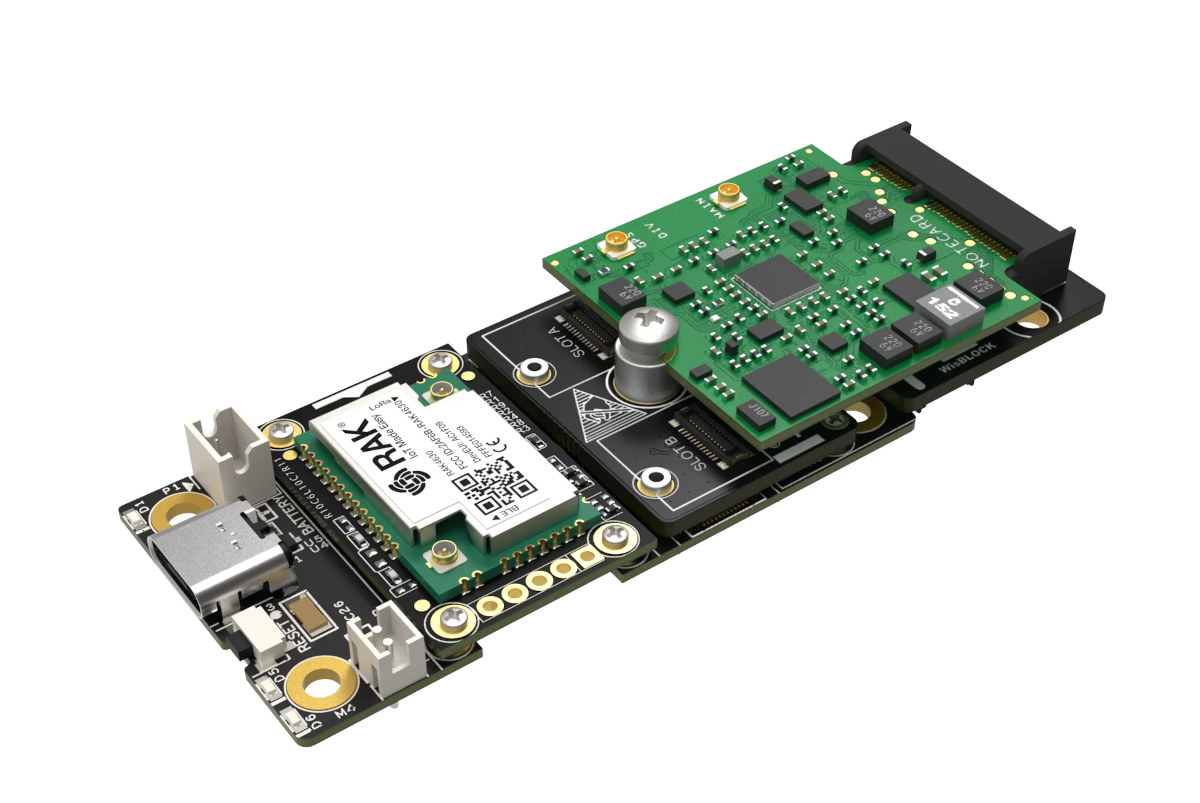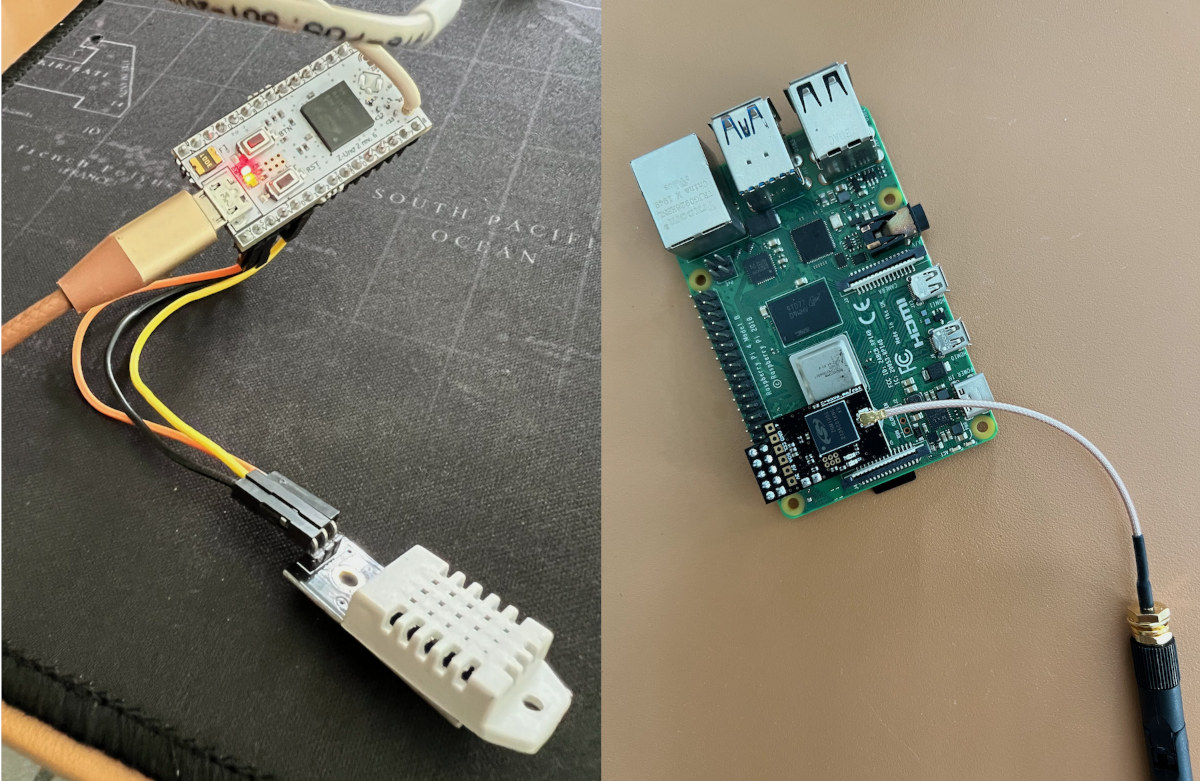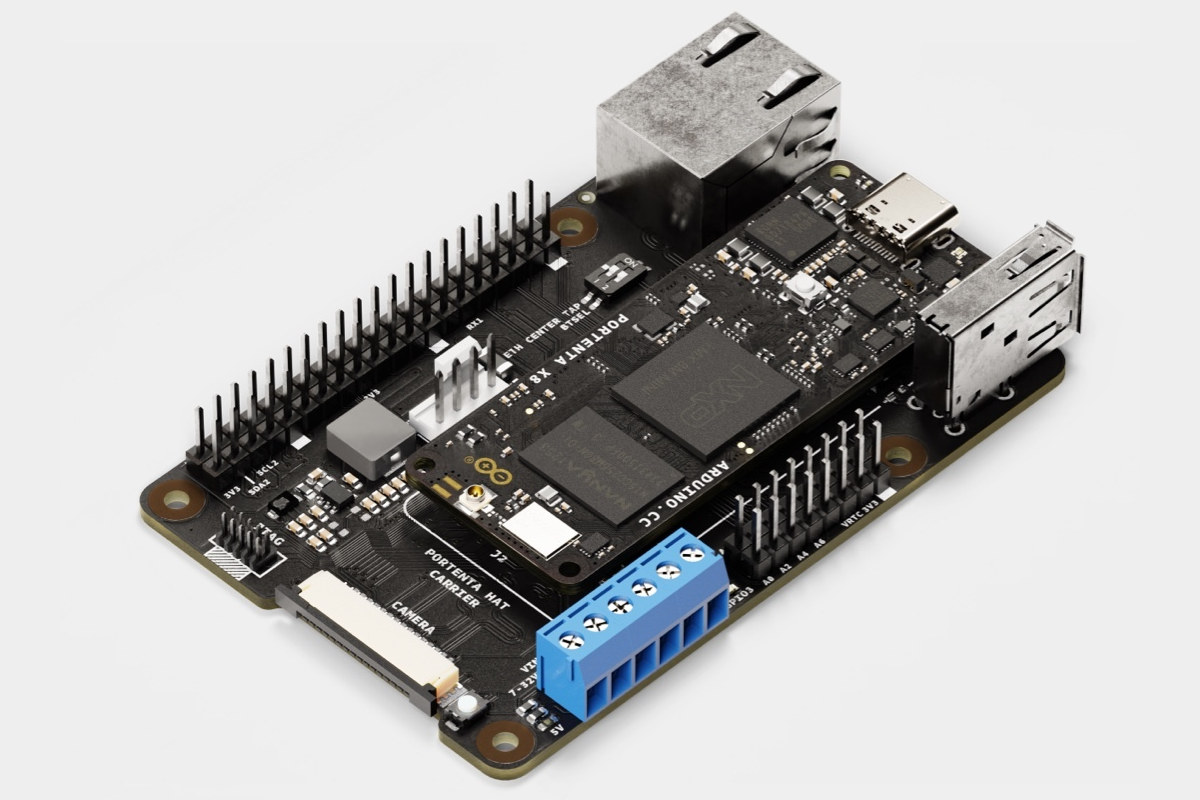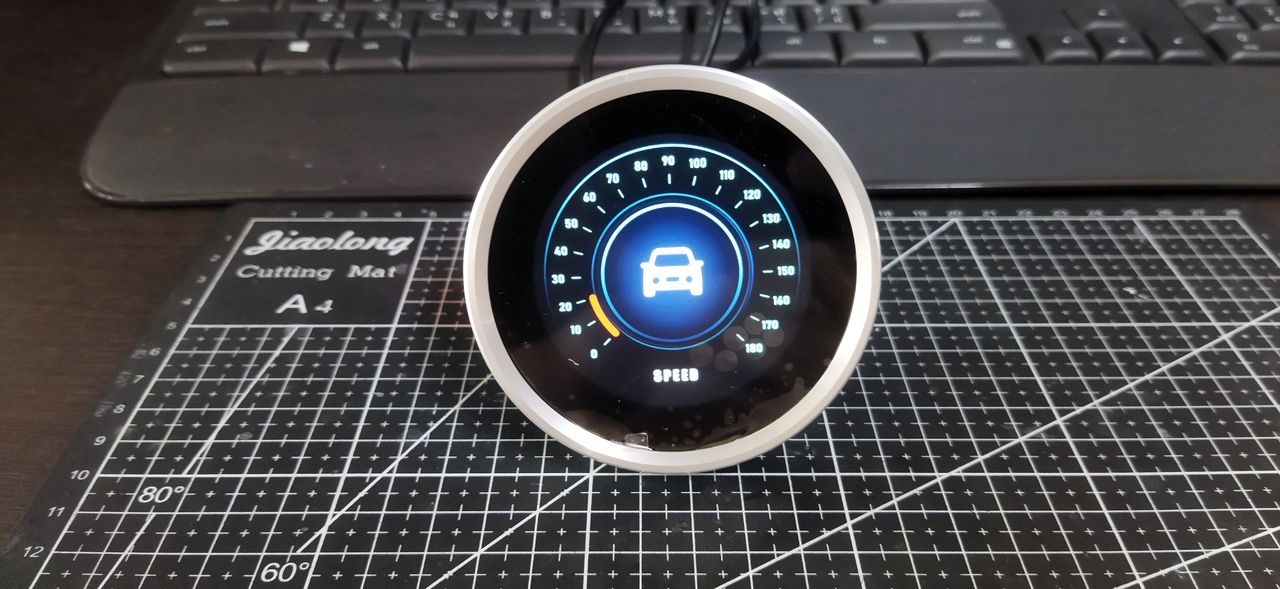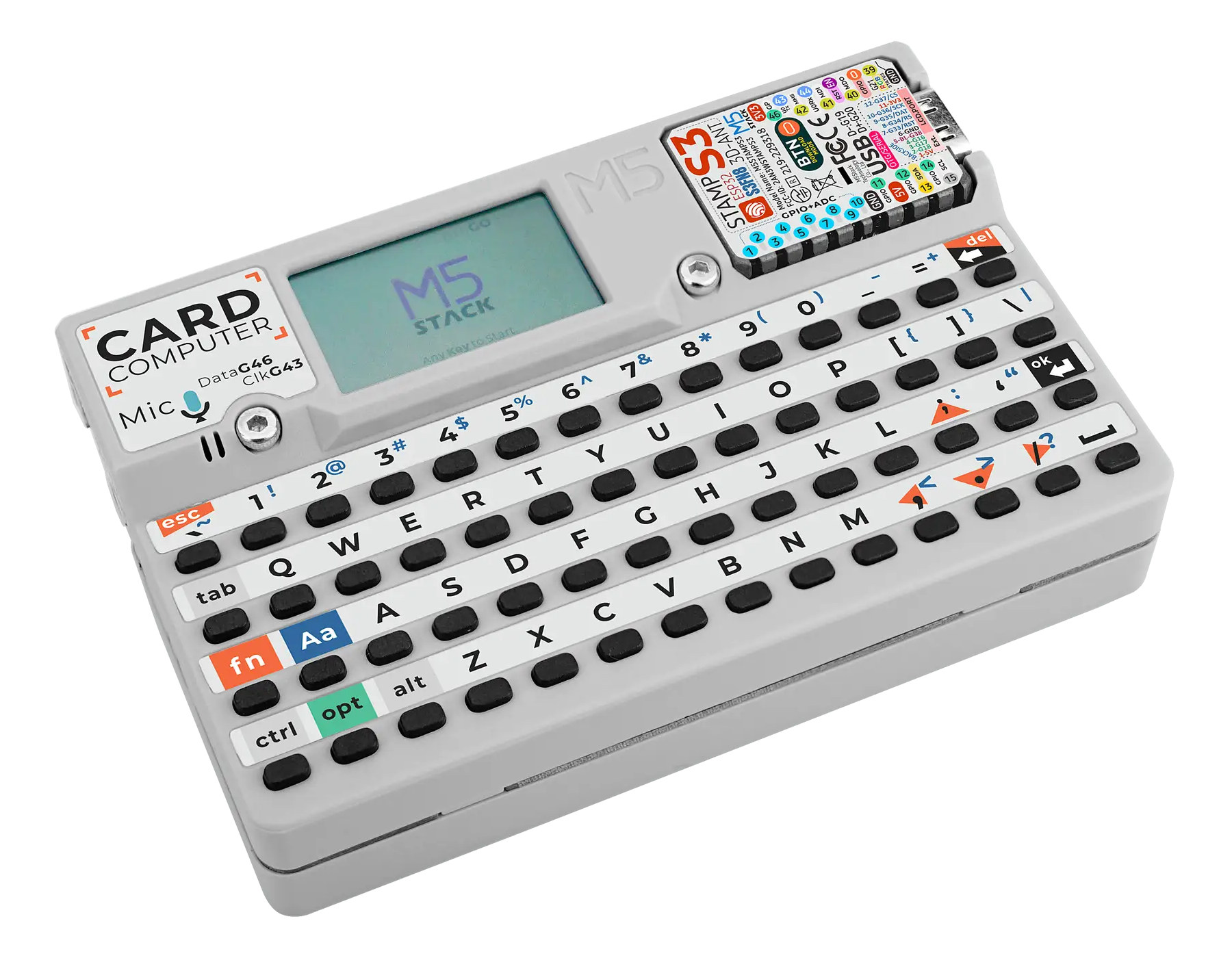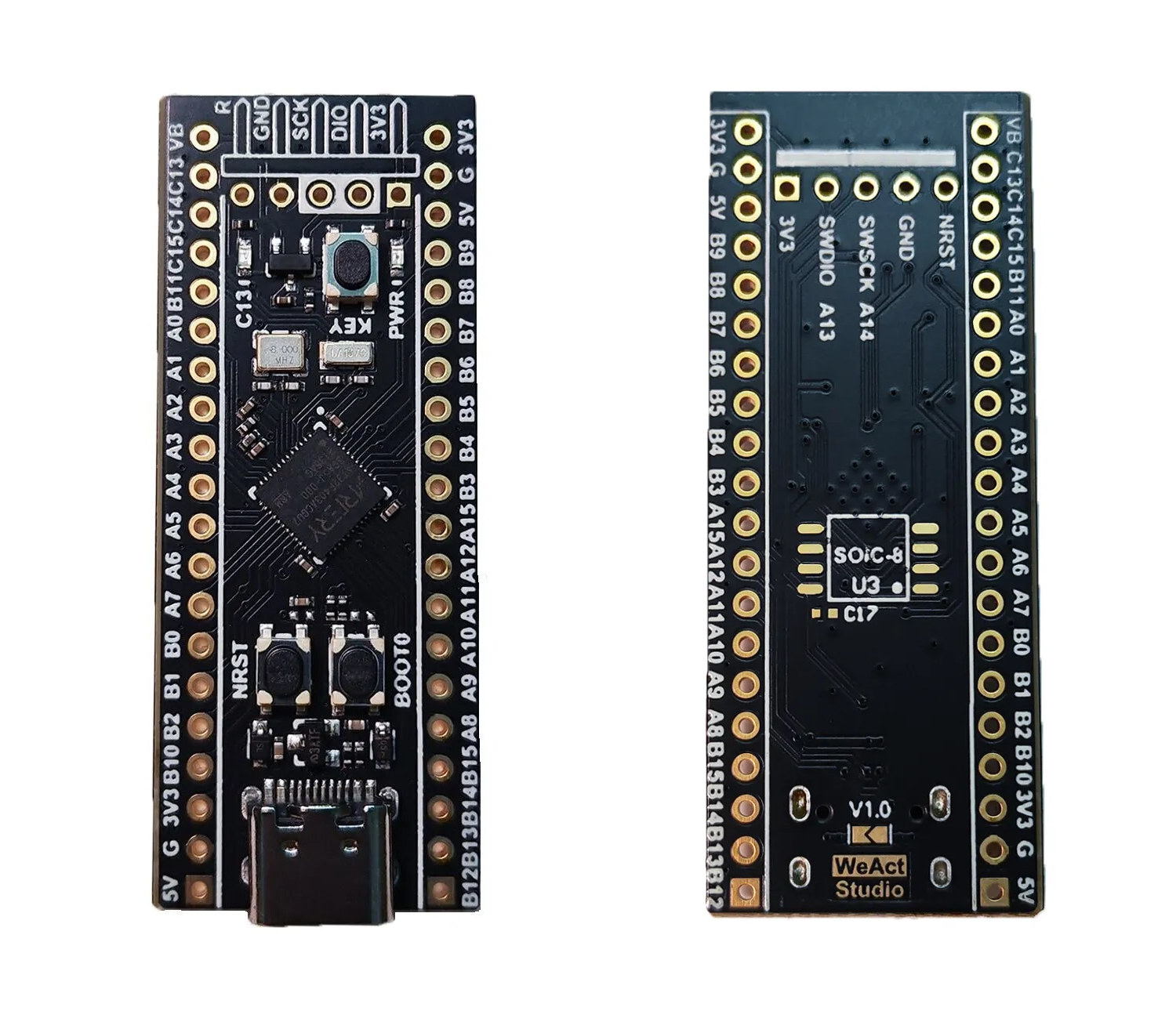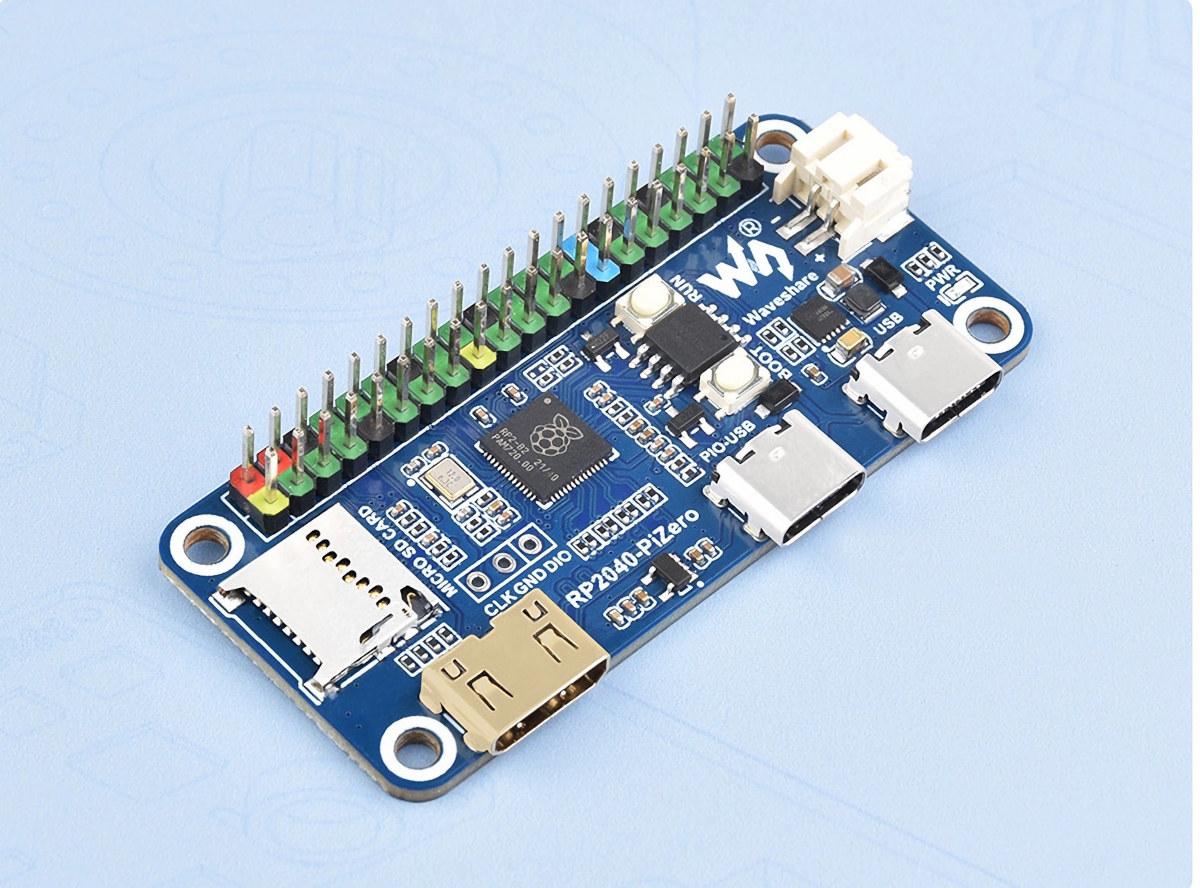Espressif Systems has now released an alpha version of ESP32 Arduino Core 3.0.0 enabling the new ESP32-C6 and ESP32-H2 targets to be programmed with the Arduino IDE, and including a number of new features made possible by the ESP-IDF 5.1 SDK. Announced in 2021, the ESP32-C6 WiFi 6, Bluetooth 5 LE, and 802.15.4 wireless MCU became available in modules and devkits at the beginning of this year, but so far they could only be programmed with the latest version (5.1) of the ESP-IDF framework, and so was the new ESP32-H2 Bluetooth 5.2 and 802.15.4 (Zigbee/Thread) MCU. But fans of Arduino programming can now rejoice as an alpha version of ESP32 Arduino Core 3.0.0 brings support for the new microcontroller, and a stable release is planned for December 2023. But as you can probably imagine ESP32 Arduino Core 3.0.0 will also bring lots of other changes since the ESP32 Arduino Core […]
RAKwireless Blues.ONE LoRaWAN, LTE-M and NB-IoT devkit ships with Blues NoteCard including a 500MB data plan
RAKwireless Blues.ONE is a LoRaWAN IoT development kit that also supports LTE-M and NB-IoT cellular connectivity through the Blues NoteCard which comes with 10 years and an upgradeable 500MB cellular data plan. The devkit relies on the WisBlock modular IoT prototyping system with the RAK13102 WisBlock Blues Notecarrier, the Blues NoteCard, a WisBlock Base Board, and a WisBlock Core module. It can be used to prototype or develop IoT devices for industrial automation and asset-tracking applications. Blues.ONE specifications: RAK4631 WisBlock Core Module SoC – Nordic nRF52840 Arm Cortex-M4F microcontroller @ 64 MHz with 1 MB Flash, 256 KB RAM, Bluetooth Low Energy 5.0 protocol stack LoRaWAN – Semtech SX1262 LoRa Transceiver with LoRaWAN 1.0.2 protocol stack (supports Class A & C), global coverage support: RU864, IN865, EU868, US915, AU915, KR920, AS923 RAK19007 WisBlock Base Board 4x Sensor Slots 1x IO Slot 1x USB Type C connector Rechargeable battery connector Solar […]
Review of RaZberry 7 Pro Z-Wave Raspberry Pi HAT and Z-Uno2 Z-Wave board
Z-Wave.Me has sent us a couple of Smart Home devices based on Z-Wave technology for review, namely the RaZberry 7 Pro Raspberry Pi HAT and the Z-Uno2 board. The Swiss company has primarily developed Z-Wave products for years and is a member of the Z-Wave Alliance. For those who are concerned about the issues of signal interference in the 2.4GHz range (WiFi, Zigbee, Bluetooth, and Thread), Z-Wave technology is an excellent choice because it operates on a less congested frequency range of 800-900MHz and the technology has been around for more than 20 years, resulting in a wide variety of Z-Wave devices available in the market, and they can work well together across different brands due to a proper certification process which is another advantage when compared to other protocols. The two devices we received are RaZberry 7 Pro, which is a shield that plugs into the 40-pin GPIO header […]
The Portenta Hat Carrier board adds Raspberry Pi HAT support to the Portenta X8 SBC
The Arduino Portenta Hat Carrier board aims to interface the Linux-capable Portenta X8 board with the vast ecosystem of Raspberry Pi HAT (Hardware on Top) expansion boards. Introduced last year, the Arduino Portenta X8 is the first Arduino Pro hardware that can run Linux thanks to its NXP i.MX 8M Mini Arm Cortex-A53 quad-core processor. But it comes in a tiny 66.04 x 25.4 mm form factor which may be great for integration into products, but for prototyping or design of products such as IoT gateways, the company has now launched the Portenta Hat Carrier that enables the board to easily connect with the Raspberry Pi HATs available today. Portenta Hat Carrier specifications: Compatible with the Portenta X8 board and future Portenta with the same high-density connectors Storage – MicroSD card slot Camera I/F – MIPI CSI camera connector (CNXSoft: Arduino does not explicitly say whether it’s compatible with the […]
Review of MaTouch ESP32-S3 Rotary IPS Display with a 2.1-inch round touchscreen display
The product we are reviewing today is the “MaTouch ESP32-S3 Rotary IPS Display with Touch 2.1” ST7701″ from Makerfabs which offers an alternative to the MaTouch_ESP32-S3 4-inch Display Demo Kit that we reviewed a few months ago. Just like the earlier model, the new kit is equipped with an ESP32-S3-WROOM-1-N16R8, featuring 16MB of flash memory and 8MB of PSRAM. This device supports both Wi-Fi and Bluetooth 5.0 wireless communication and offers connectivity options through I2C and UART ports for interfacing with external devices. The display features a round IPS panel with a resolution of 480×480 pixels, capacitive touch capability, and LVGL library support. Additionally, it includes a mechanical rotary encoder and supports press operations. MaTouch ESP32-S3 Rotary IPS Display specifications Controller: ESP32-S3-WROOM-1, PCB Antenna, 16MB Flash, 8MB PSRAM, ESP32-S3-WROOM-1-N16R8 Wireless: Wi-Fi and Bluetooth 5.0 LCD: 2.1-inch High Lightness IPS,65K color LCD Driver: ST7701S FPS: > 70 Resolution: 480×480 LCD interface: […]
M5Stack Cardputer – A $30 card-sized ESP32-S3 computer with display and keyboard
M5Stack Cardputer is a card-sized portable computer based on the ESP32-S3-powered M5Stamp S3 wireless module and equipped with a 56-key keyboard and 1.14-inch TFT display, plus some sensors and peripheral expansion ports. At first, it’s hard to imagine what it could be used for apart from being a hardware hacking toy, but the company says the card-sized WiFi computer can be used for rapid functional verification, industrial control, and home automation systems. M5Stack Cardputer specifications: Wireless MCU module – M5Stack M5Stamp S3 with SoC – Espressif Systems ESP32-S3FN8 dual-core 32-bit Xtensa LX7 microcontroller with AI vector instructions up to 240MHz, RISC-V ULP co-processor, 512KB SRAM, 2.4GHz WiFi 4 (802.11b/g/n), Bluetooth 5.0 BLE + Mesh, 8MB flash 2.4GHz 3D antenna USB – 1x USB Type-C port Expansion connectors for I/Os such as SPI, I2C, UART, ADC, and more Storage – MicroSD card socket Display – 1.14-inch IPS LCD with 240×135 resolution […]
49 cents “Black Pill” board clone features AT32 Cortex-M4F microcontroller
The “Black Pill” board with an STM32F4 Cortex-M4F MCU is already cheap, but I’ve just come across a clone going for just 49 cents plus shipping (34 cents to Thailand) based on a 240 MHz AT32 (or AT32F4) Cortex-M4F microcontroller with Arduino support. [Edit: the price looks like a lottery and everybody seems to get a different price, and not related to VAT. See comments section] Other features are pretty much the same with two 20-pin headers for GPIOs, an SWD header, a USB Type-C port for power and programming, and a few buttons. WeAct “Black Pill” board specifications: Microcontroller – Artery Technology AT32F403ACGU7 Cortex-M4F MCU @ 240MHz with 96 + 128KB RAM, 256KB zero wait-state flash, 768KB non-zero wait-state flash; note: RAM and flash size are somehow configurable by the user, and the numbers listed here are the maximum capacities. Storage – Footprint for SPI flash USB – 1x […]
Waveshare RP2040-PiZero – A Raspberry Pi RP2040 board with Raspberry Pi Zero form factor
Waveshare RP2040-PiZero board is a Raspberry Pi Zero lookalike that features a Raspberry Pi RP2040 microcontroller instead of a Linux-capable application processor. But RP2040 board comes with the same layout as the Raspberry Pi Zero and similar ports including two USB Type-C ports, a mini HDMI/DVI connector, a microSD card slot, and a 40-pin GPIO header, but also adds support for LiPo batteries with a 2-pin connector and a charging circuit. RP2040-PiZero specifications: MCU – Raspberry Pi RP2040 dual-core Cortex M0+ microcontroller @ 133 MHz with 264 kB of embedded SRAM Storage – 16MB SPI flash, microSD card slot Video – Mini HDMI port that can output DVI signals USB – 1x USB Type-C port for data using PIO-USB host/device implementation Expansion – 40-pin color-coded header with 2x SPI, 2x I2C, 2x UART, 4x 12-bit ADC, 16x PWM, 8x Programmable I/O (PIO) state machines for custom peripheral support Misc – […]


